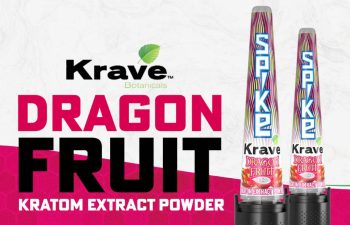Let’s talk about “ghosting.” No, not the kind where your Tinder date disappears into the ether (though, ouch). We’re talking about the new workplace epidemic: vanishing without a trace in the middle of a business conversation. Yes, it’s a thing now. And yes, it’s as lame as it sounds.
In the modern workplace, communication isn’t just a “nice-to-have” soft skill—it’s the actual backbone of every successful professional relationship. But apparently, some folks missed that memo (or, more likely, just didn’t reply to it). Suddenly, it’s totally normal to just . . . stop responding. No explanation. No closure. Just poof. Wrong.
Let’s be clear: ghosting isn’t just a harmless side effect of being “super busy” or “overwhelmed.” Nope. It’s not your calendar’s fault. No. It’s not Mercury in retrograde. Never. It’s just plain unprofessional. Google that. When you ignore emails, calls, or text messages—which for the record makes me CRAZY—especially after you’ve already engaged—it’s basically telling the other person, “Your time and effort? Meh.” Whatever. No, not whatever. In any industry, that’s not just disappointing. It’s damaging. Like, “watch your reputation slowly circle the drain,” damaging. It will catch up with you, this I promise. The “Text Ghost” is not an honor anyone should be aiming for.
When Silence Isn’t Golden
Every business, from Fortune 500s to your cousin’s Etsy shop, relies on clear, timely communication. When professionals ghost each other—be it a vendor, a job candidate, a client, or a potential partner—confusion reigns. Projects stall. Deals die. Trust? Gone. All of it. And if you think this only affects the person you ghosted, think again. Over time, it chips away at your own credibility and your company’s reputation. But hey, at least you saved yourself the 30 seconds it would’ve taken to type, “Thanks, but we’re going in another direction.” Really, time it. 30 seconds.
It’s funny (not really) how often people say they want to be taken seriously in business. “I’m building my network!” “I want to be seen as a pro!” Cool, man. But did you miss the 100 times your parents said, “Actions speak louder than words”? If you want to be seen as credible and trustworthy, you have to actually be credible and trustworthy. Yes, you really do. That means communicating, being responsive, and—brace yourself—being accountable. This isn’t Advanced Business Theory. It’s Business 101.
Relationships Are Everything: And Nothing Says ‘Professional’ Like Dropping Off the Face of the Earth
Here’s a wild idea: business is about relationships. Shocking, I know. Whether you’re negotiating a contract, collaborating on a project, or just schmoozing at a networking event, open and honest communication is what separates the pros from the amateurs. Ghosting? It leaves people wondering what went wrong, if they made a mistake, or if you were abducted by aliens (and some of you should be). It creates uncertainty and distrust. And honestly, who needs more of that? Not me. Don’t ghost me; I keep track, and so should you.
Now, imagine the alternative: clear, timely communication. Imagine all the people. Even a quick, “Thanks for your time, but we’re passing,” preserves goodwill and keeps the door open for future opportunities. It shows respect, maturity, and a commitment to building real professional relationships. In other words: grow up.
Accountability and Professionalism: Not Included in the Ghoster’s Handbook
Responsiveness isn’t just about replying to messages before they turn into digital fossils. It’s about being accountable for your commitments and being transparent about your intentions. Let’s repeat that: It’s about being accountable for your commitments and being transparent about your intentions. If things change, say so. If you’re not interested, say so. If you need more time, say so. It’s not rocket science, people. Say so. These tiny acts of professionalism go a long way in building trust and credibility. Duh.
Raising Expectations: Because “Vanishing” Isn’t a Career Path
And here’s the kicker, serial ghosters: expectations for professionalism are rising everywhere. Truth. Those who embrace open communication and relationship-building? They’ll thrive. Those who keep ghosting and dodging accountability? They’ll be left behind (and this I would like to see, I have a list.)
And remember: business isn’t a magic act. Disappearing doesn’t make you a star—it just makes you hard to work with. So let’s raise the bar. Let’s make ghosting a relic of the past—right next to reply-all email chains. Let’s show the world we’re serious, reliable, and ready to do business like grown-ups. Because at the end of the day, communication isn’t just good manners—it’s good business. Game on, folks. You can be a ghost for Halloween, I support you.
Do you know a powerhouse woman making waves in the cannabis industry? Whether she’s leading, innovating, advocating, or inspiring, we want to hear her story! Our Women in Cannabis spotlight celebrates the trailblazers, changemakers, and unsung heroes shaping the future of the industry. Nominate someone who deserves the recognition—because their work deserves to be seen! Submit your nomination now, click here!





















